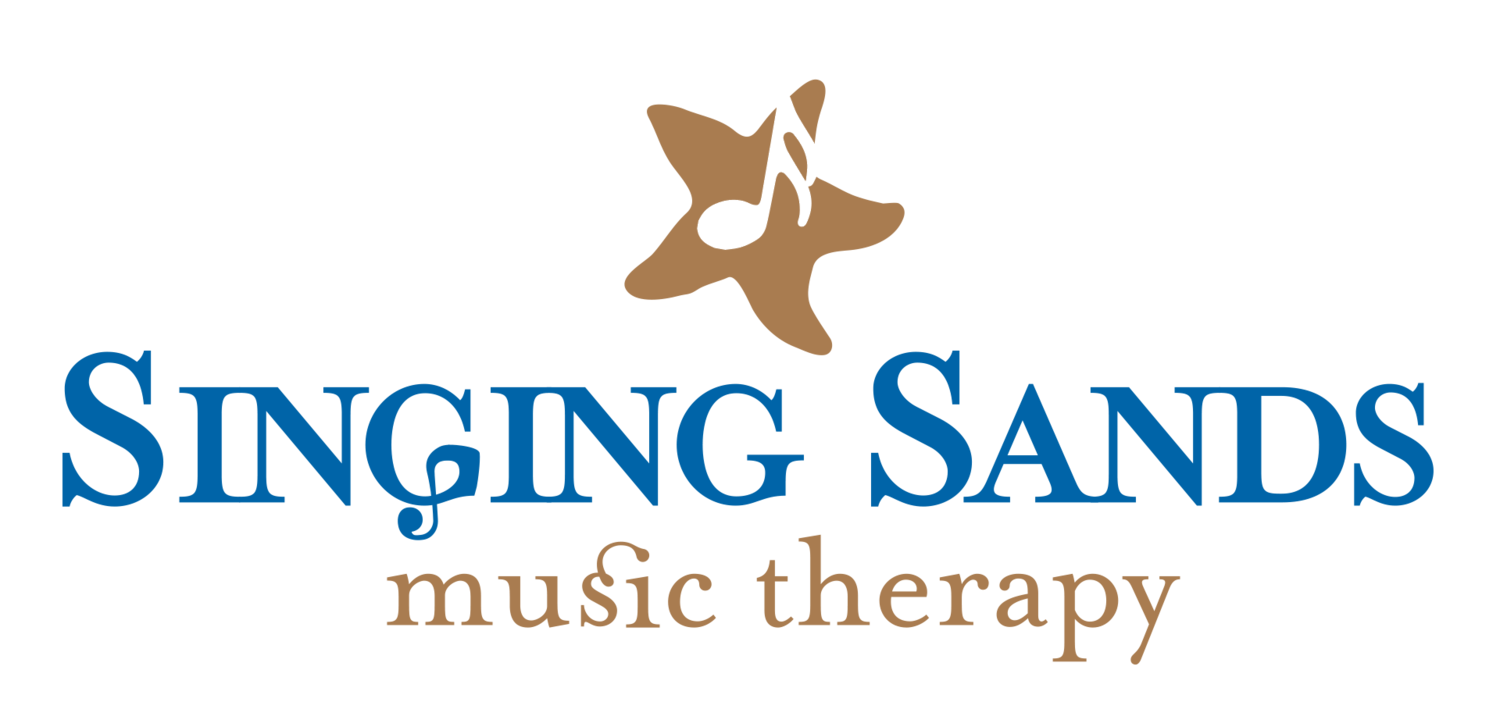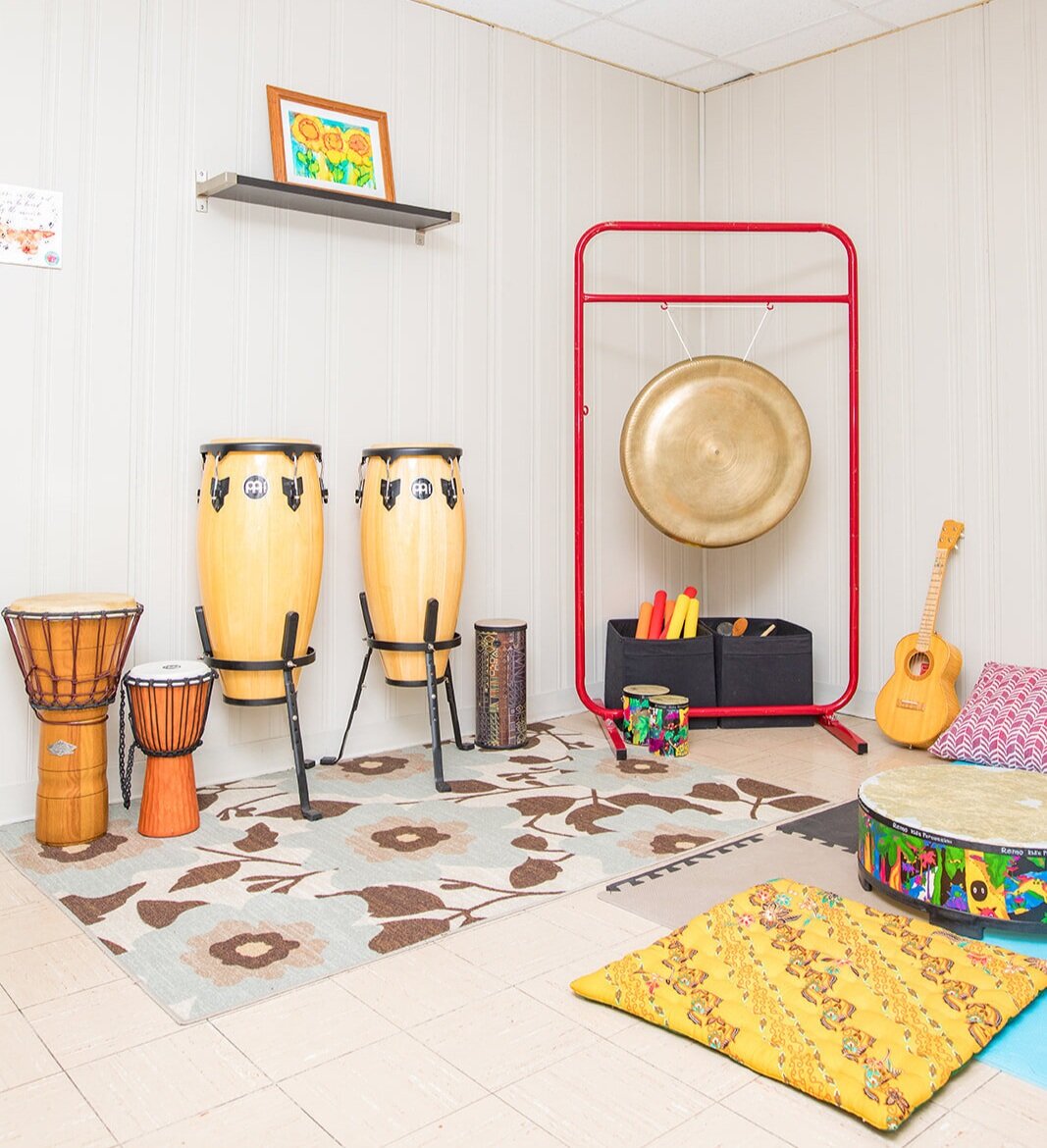
About Music Therapy
Discover what’s involved in music therapy and how it can help you or your loved ones.
Music as Therapy
“What do you do in music therapy?" is the most commonly posed question we hear. Not to mention having fun, a music therapy session can include, but not be limited, to the following interventions:
Movement ~ including rhythmic activities. Music therapists are trained to utilize the rhythm based techniques that are aimed at promoting the client's range of motion, balance, coordination, fine and gross motor skills, relaxation, mobility, and strength.
Improvising ~ either in a structured or spontaneous environment, improvising offers a creative and non-verbal means of communicating positive or negative emotions in a non-threatening space.
Playing instruments ~ while improving fine and gross motor coordination, instrument playing can increase a client's self-esteem, attention span, leadership, and well-being, all while providing a sense of accomplishment.
Songwriting ~ used to facilitate the expression of ideas, emotions, and experiences which result in the client's satisfaction of having created something.
Singing ~ articulation, rhythm, and breath control are areas in which singing aids in development. In groups, singing can reduce fear and anxiety, while promoting social skills and awareness of others. In individual settings, singing can provide a means of improving the development of speech and self-esteem.
How Can Music Therapy Help?
Music therapy goals and benefits include, but are not limited to, the following:
Increased self-esteem
Fine/gross motor skill development, maintenance, and rehabilitation
Speech development and rehabilitation
Range of motion
Stress and anxiety management
Positive outlet for self-expression
Pain management
Improved interpersonal and social skills
Improved focus and concentration
Who Can Benefit from Music Therapy?
Populations (in group or individual format) who can benefit from music therapy include the following:
Autism Spectrum Disorder
Obstetrics/Neonatal care
Developmental Disabilities
Global Developmental Delay
Cerebral Palsy
Neurological impairments (Acquired Brain Injury, Stroke)
Geriatric care
Alzheimer's
Dementia
Down Syndrome
Palliative care
Speech and language impairments
Emotional well-being
Personal growth


